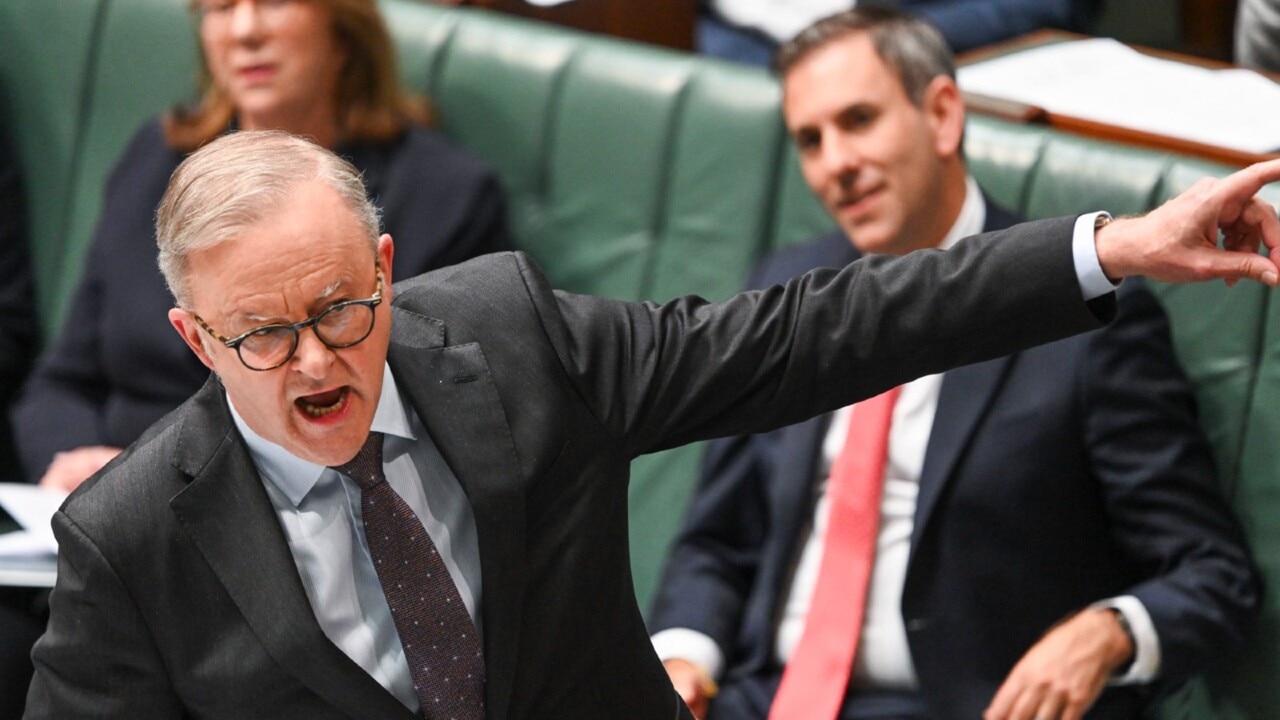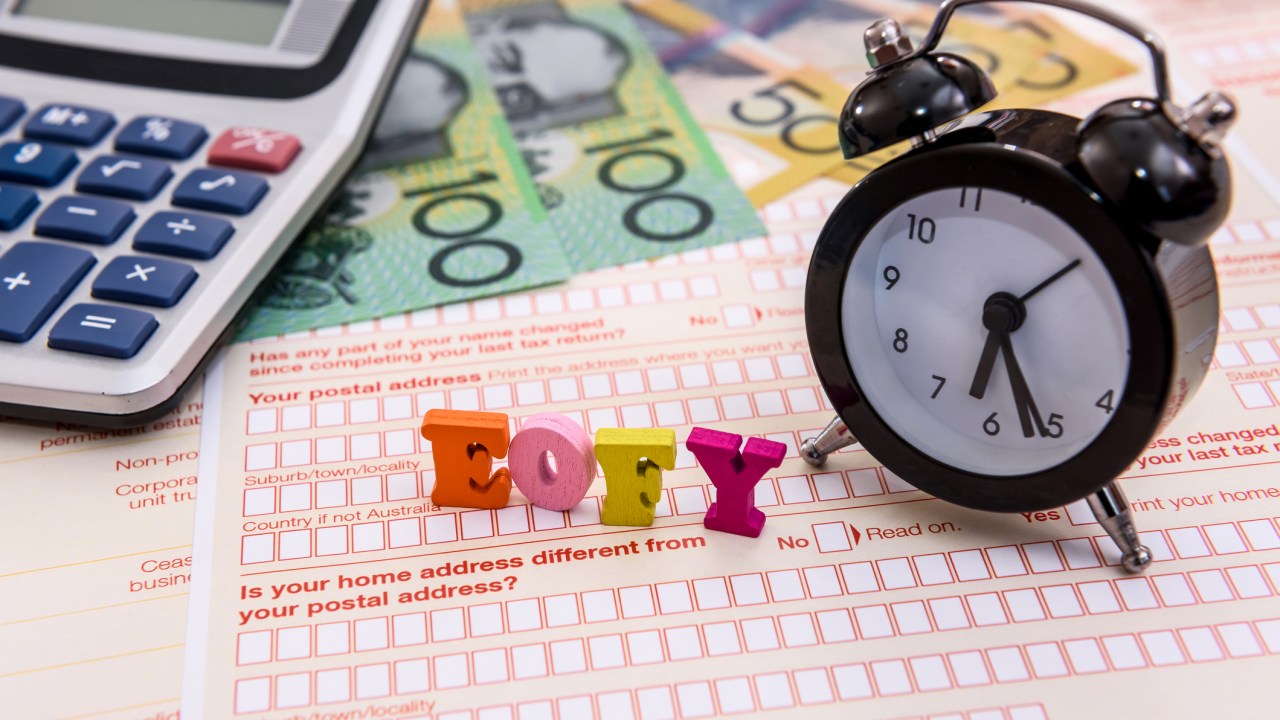Australians will soon face a host of big changes on everything from taxes to passport fees as the 2023-24 financial year comes to a close.
From July 1, households are set to see a number of new benefits come into effect, although one measure will also add a new cost to family budgets.
Most significant is the introduction of the revised stage three tax cuts, which will see millions of Australians allowed to keep more of what they earn and provide welcome relief to many struggling with soaring cost of living pressures.
Revised stage three brings breaks for everyone
Under the changes households will receive a tax break worth between $350 and $4,500 depending upon their income, with Westpac estimating the average taxpayer will save about $1,880 each year.
While some Australians will be left disappointed with the changes, following the Albanese government’s decision to alter the already legislated cuts earlier this year, those earning $150,000 or less are set for a boost.
Originally, the stage three cuts, as put forward by the Morrison government, would have seen those earning $200,000 or above receive a break of $9,075 per year, roughly double the relief set to pass under the modified version.
The original plan would have also eliminated the 37 per cent tax bracket, setting a flat rate for those earning between $45,000 and $200,000 of 30 per cent.
However, the Albanese government instead opted to maintain the 37 per cent bracket, although they modified the threshold to kick in at $135,000 rather than $120,000.
In addition, the top tax rate of 45 per cent will now kick in at $190,000, as opposed to $180,000.
The changes, which sparked a political backlash, are estimated to cost the economy about $8.4 billion over the four years to 2026 according to analysis from the Parliamentary Budget Office, although some economists have put the yearly cost to the government as high as $20 billion a year in lost revenue.
A pay rise for low-income workers
As well as benefitting from a larger tax break, many low-income workers are set for a significant pay rise on July 1, with about 2.6 million Australians set to benefit from an uptick in the minimum wage.
Following a decision by the Fair Work Commission in June, award and minimum wages should see a boost of at least $33.10 per week as a result of a 3.75 per cent increase to wages.
Speaking after the decision, FWC President Justice Adam Hatcher explained the Commission had elected to keep the increase below inflation given productivity was still low and households were also set to benefit from other government support.
“It is not appropriate at this time to increase award wages by any amount significantly above the inflation rate,” he said.
“This is principally because labour productivity is no higher than it was four years ago and productivity growth has only recently returned to positive territory.
“We have also taken into account that modern award-reliant employees will shortly receive the benefit of the stage three tax cuts and the budget cost of living measures, which are projected to increase real household disposable incomes over the next 12 months.”
Productivity has become a growing concern for economists and the Reserve Bank over the past 12 months, with data from accounting software firm Xero revealing on Thursday Australia experienced a decline in labour productivity across all sectors last year.
Hospitality, which is one of the sectors most affected by the FWC’s pay increase, was rated one of the nation’s least productive, with education and training and healthcare also performing poorly.
The latter two sectors have been heavily targeted by the Albanese government for pay rises, which Treasurer Jim Chalmers has also insisted would help develop a highly productive care economy.
Super shake-up and longer leave
Other key areas of government focus have been boosting leave entitlements and superannuation, with both set to see changes come the new financial year.
Australia’s paid parental leave scheme is set to expand from July 1, with the current 20-week period set to grow by two weeks each financial year till it reaches a total of 26 in 2026.
While new parents will be able to enjoy more time off, the rate of pay is set to remain tied to the national minimum wage of $915.91 per week.
Parents who have either had or adopted a child after July 2023 will be able to access the scheme, with the full period of 22 weeks granted to both parents if their combined income is less than $350,000.
For families earning over that amount, the majority of the leave can be accessed by one parent who earns less than $168,865.
Single parents must earn less than $350,000 to access the scheme.
Meanwhile, the nation’s superannuation guarantee will rise 0.5 per cent, to a total of 11.5 per cent, starting July 1, before rising a further 0.5 per cent to reach 12 per cent total in 2025.
Once it hits that rate, also on July 1 next year, the government will also begin paying super on paid parental leave.
Caps on super contributions are also set to increase in the new financial year, with the before-tax contribution cap in 2024-25 set at $30,000, up from $27,500 in 2023-24.
The after-tax cap will also rise to $120,000, up from $110,000 in 2023-24.

Cost of living relief a timely boost for some
Finally, the government is set to implement some of the cost of living relief announced in the May budget, with the $300 energy rebate and indexation on welfare payments due to come into effect.
All households, regardless of income, will be handed a $300 discount on their power bills from July 1, structured as four $75 credits applied once per quarter.
Small businesses will also see some relief, with a similar rebate totalling $325.
A centrepiece component of the government’s $7.8 billion cost of living package, the proposal has proven controversial, with economists arguing it could risk adding to inflation and making it harder for the RBA to steady the economy.
In addition to the energy rebate, Commonwealth Rental Assistance is set to rise ten per cent from July 1, as the government looks to help ease pressure on renters struggling with massive price rises.
Students who faced massive increases to their HELP loans due to higher inflation are also due reimbursements after the government promised to ease their debt burden.
Quarterly indexation to income and asset thresholds will also see Family Tax Benefit Part A and B recipients granted modest increases of between $8.68 and $11.34 and $7.42 and $5.18 per child, respectively.
The end of year supplements will also increase by $36.50 for Part A and $18.25 for Part B.
Those on the Age Pension, Disability Support Pension and Carer Payment will also see greater support.
Passports get pricey
However, not everything on July 1 will benefit households, with the cost of new passports set to rise drastically next financial year.
Australians will now face one of the highest fees in the world for a a 10-year adult passport, with the cost due to rise 15 per cent from $346 to $398.
Budget papers also revealed those seeking new documentation would be able to pay a new $100 fee to fast-track their passport inside five business days.
It currently takes an average of six weeks to renew or obtain a passport according to the Australian Passport Office.
While there is an existing fast-track option to receive a document within two business days, it comes at an additional cost of $252 on top of the base passport fee.
Defending the change in Parliament, Foreign Minister Penny Wong said she saw the increased fee as a “reasonable step,” although she conceded “I understand no one likes to pay more for things.”

